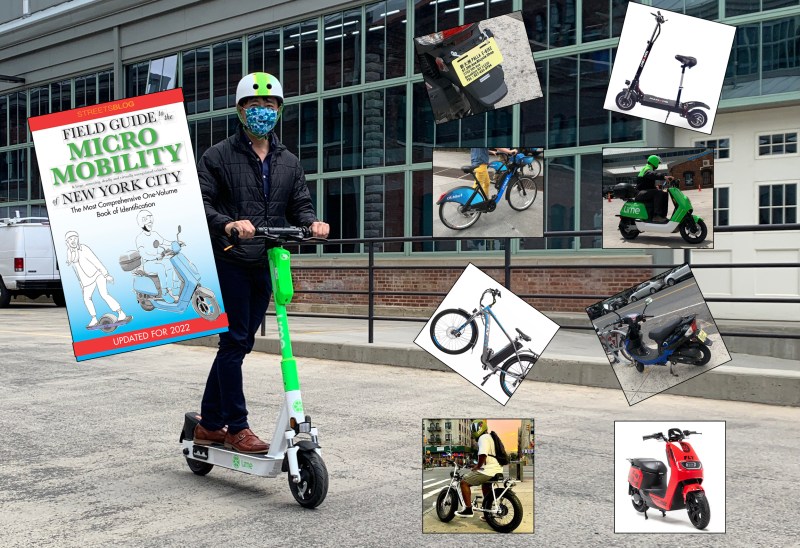Task Farce Delta: City Hall Also Has Its Own Electric Micromobility Panel

The task force so nice they did it twice.
City Hall is getting involved in the electric micromobility task force game, according to Parks Department Commissioner Sue Donoghue in a letter to a trio of City Council members who want the department to reconsider its ban on e-bikes that the lawmakers say create a “zone of inaccessibility” in the city.
Response from @NYCParks to @CMShahanaHanif @hudson @RitaJosephNYC re their letter urging a thoughtful ebike policy in @prospect_park is positive.
Looks like the commissioner has been thinking about the ban, too, and feels it’s impt to revise the policy, centering safety for all pic.twitter.com/Iy7jFO3Mt9
— Kathy Park Price (@KathyParkPrice) January 16, 2023
“City Hall has convened an interagency task force to propose policy recommendations on the topic of electric micromobility,” Donoghue wrote. “The focus of this task force is threefold: to promote the growth of the mode; to prevent the loss of life and injury due to battery fires and traffic crashes; and to serve the needs of all riders from delivery workers to commuters to families.”
Mayor Adams’s office directed Streetsblog to the above statement when asked for more details on the task force, such as when it started, which city agencies are involved in it and when it will come out with recommendations.

The task force is also a good reminder that a year into Donoghue’s reign atop the Parks Department, that agency’s own task force has not moved city policy in any visible way beyond further criminalizing e-bikes. Signs reiterating the ban are continuing to sprout in city parks, and the NYPD and Parks have set up blockades at Prospect Park to keep e-bike riders out of the park, even though the e-bike ban puts city policy at odds with state law.
New York has struggled with how to adapt its streets for an era where electric bikes, e-scooters and other electric-powered vehicles similar to mopeds are becoming the mode of choice for more and more people. So far, the city has not widened bike lanes to make room for the fast vehicle or created specific lanes for the micromobility devices. However, the New New York panel convened by Gov. Hochul and Mayor Adams did feint at making city streets more welcoming for the growing transportation mode.
“The city and its business districts can maximize on these benefits by retrofitting city streets for safe and accessible use of bikes, e-bikes, and other micromobility devices,” the panel report authors wrote in a recommendation report.
While that includes existing policy such as expanding the bike network and expanding Citi Bike to further reaches of the city, the report also recommends that the city widen existing bike lanes “on key north-south thoroughfares in business districts to support both micromobility (electric bikes) and micro-distribution (electric cargo bikes).”
City streets have not been kind to delivery riders, who overwhelmingly rely on e-bikes and electric mopeds. A city study on working conditions for delivery riders found that delivery workers on e-bikes and mopeds suffered the most injuries that caused them to miss work out of any profession in the city. Micromobility users have also fared poorly on streets, with 21 of them killed (classified by the city as “other motorized” deaths) in 2022, up from 15 in 2021.

In addition to needing to make room on the road for e-bikes and other small electric vehicles, the city has also been figuring out how to regulate the use of lithium ion batteries that power e-bikes favored by delivery riders. The FDNY said that it supports a package of City Council bills introduced last year that would involve a combination of educational campaigns and banning secondhand lithium ion batteries, but delivery rider advocates criticized the package over the battery purchase regulations.
In the wake of existing city policy and standards, some residential management companies have taken matters into their own hands and simply banned electric bikes and e-scooters over fears that the lithium ion batteries that power the devices could cause fires.
Cycling advocates said that they hoped the City Hall task force would learn from what the City Council is working on, and finally make a real commitment to keeping cars and trucks out of the green paint.
“Regarding batteries, I like where the Council is going addressing the issues as consumer-oriented and developing battery standards,” said Bike New York Director of Advocacy Jon Orcutt. “And in terms of safety, the city has to start talking about and enforcing parking and traffic laws.”





